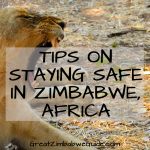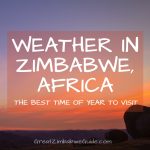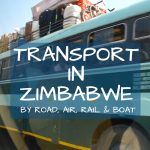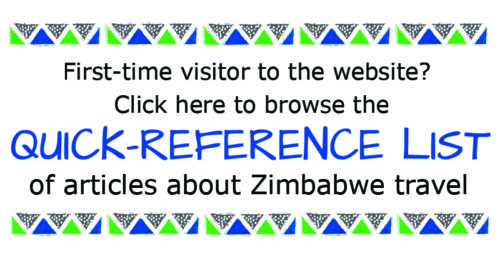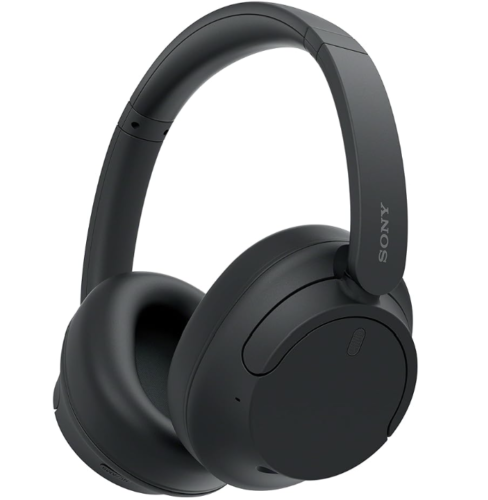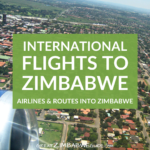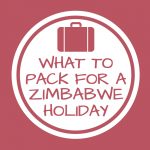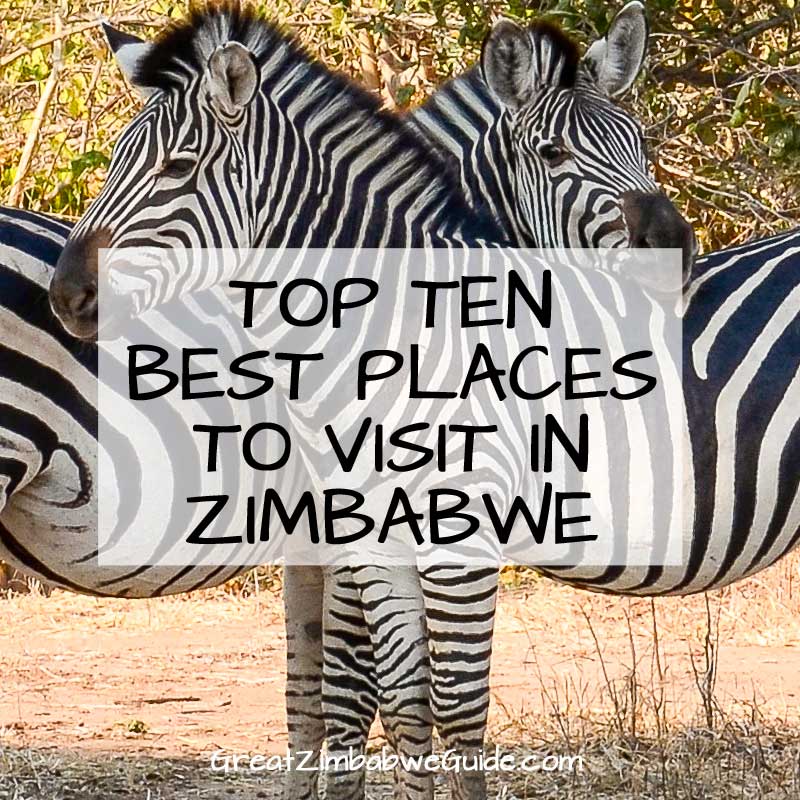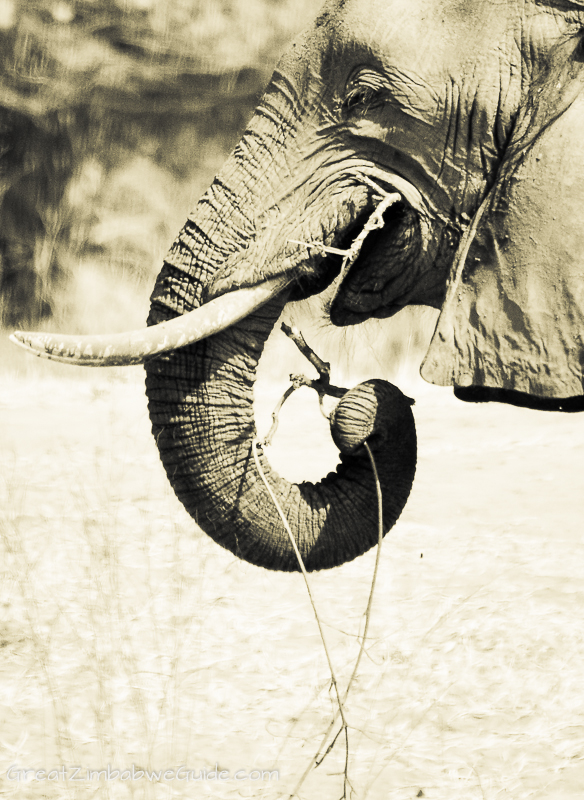This article was fully updated in June 2024.
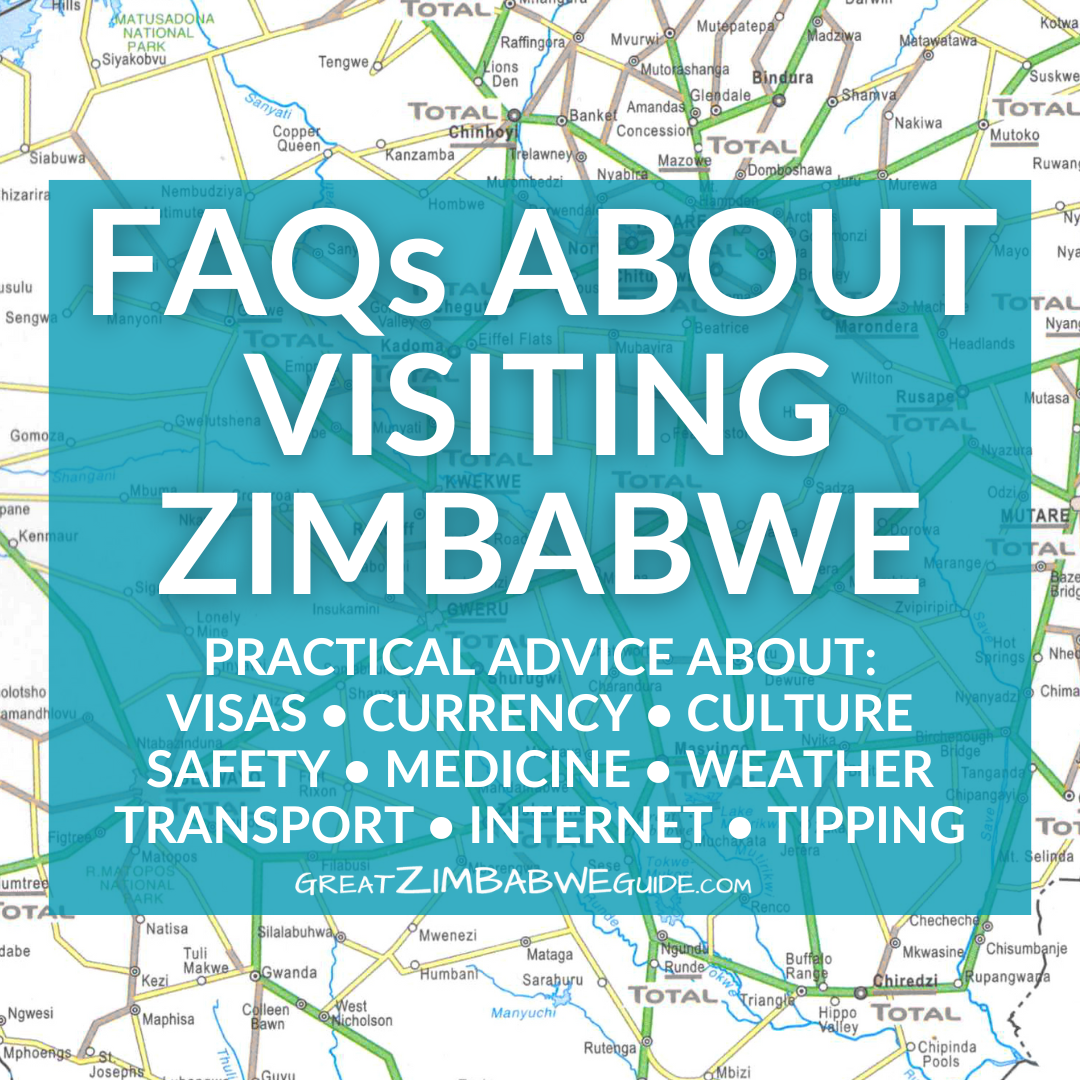 Visiting a different country always makes you wonder just how different it will be. You can spend hours obsessing over all the practical information, and wake up in the middle of the night wondering, “What if I don’t like the coffee over there? Should I take my own?” Or is that one just me?
Visiting a different country always makes you wonder just how different it will be. You can spend hours obsessing over all the practical information, and wake up in the middle of the night wondering, “What if I don’t like the coffee over there? Should I take my own?” Or is that one just me?
If you’re following this blog, you’ll know that Zimbabwe is a friendly, laid back place, and there will always be someone to guide you if you need help. The majority of people speak English very well, so communication is a win. With that said, it always helps to plan ahead, so here are answers to the most common FAQs.
Zimbabwe is roughly double the size of the United Kingdom, which means that it has a huge amount to offer visitors. Let’s get started on the practical information!
Zimbabwe FAQs:
Click to jump to a specific topic …
1. Do I need a visa to travel to Zimbabwe?
2. What currency is used in Zimbabwe?
3. What language is spoken in Zimbabwe?
4. What cultural traditions do I need to be aware of in Zimbabwe?
5. What health precautions do I need to take when visiting Zimbabwe?
7. What’s the weather like in Zimbabwe?
8. Which airlines fly into Zimbabwe?
9. What transport should I use in Zimbabwe? / How do I travel around Zimbabwe?
10. What do I need to pack for Zimbabwe?
11. What time zone is Zimbabwe in?
12. Is Internet access/Wifi easily available?
13. What’s the international telephone dialling code?
14. Do people usually give tips?
15. Is it ethical to visit Zimbabwe?
Answers are below … But first, a map! Note that “South Africa” is the name of a country, not a region of Africa. South Africa and Zimbabwe are different countries, with different currencies and ethnicities.
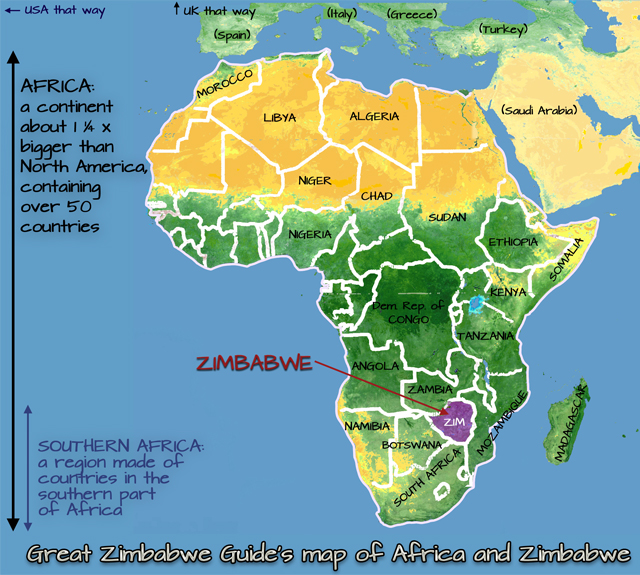
Do I need a visa for Zimbabwe?
- If you have questions about passport and visa requirements for tourists to Zimbabwe, don’t fear! There’s a full article dedicated to this question in my post Visa requirements for Zimbabwe. For the majority of visitors, the good news is that the visa process is simple and doesn’t require much planning.
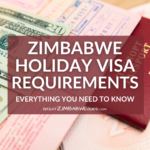
What currency is used in Zimbabwe?
2. Zimbabwe Dollars (Zigs) and US Dollars are the main currencies in Zimbabwe.
- Prices are displayed in either Zimbabwean dollars (Zigs) or US dollars. If it’s a big number, it will be Zigs; if it’s a smaller number, it will be US Dollars. There’s no need to carry any local Zimbabwe Dollars/Zigs; you only need US Dollars cash. Even if a price is displayed in Zigs, you can pay the teller in US Dollars. Just do a quick Google to check the exchange rate.
- You can also pay in South African Rands.
- Coins are not really used.
- Take small denominations of notes such as US dollar ones, fives, tens and twenties. Two-dollar bills are also used in Zimbabwe.
- In cities and larger towns, such as Harare, Bulawayo, and Victoria Falls, you can also pay with your international bank card on a swipe machine. Grocery stores such as Pick n’ Pay accept international bank cards.
- In rural places such as in the National Parks, Kariba, Nyanga, Hwange, you’ll need to pay in US cash.
- Some ATM cash machines in Harare, Bulawayo and Victoria Falls do dispense US Dollar cash for your international bank card. There may be a bank fee.
- Many locals pay for items using their local bank cards in either Zigs or US Dollars. Cash in hand is usually more valuable to them than the currency on their local bank cards. In rural locations, people may see you paying with US cash and ask you if they can pay for your items using their local cards, and you give them the equivalent in US cash. I personally would politely decline this as it can get complicated. A smile and a “No, thank you” is fine.
- If you pay for an item and need change that amounts to less than a dollar, there are usually no coins to give as change. You will likely be offered a voucher from the shop, or a product that is equivalent in value as the change required, such as chewing gum.
- The golden rule is: If you’re coming from abroad, pay for as much of your holiday BEFORE you get to Zimbabwe as you can. This can include accommodation, activities, transfers, parks fees and meals. That way, you won’t need so much cash when you get there.
- You will however need to take some amount of cash with you, in particular for the entry visa fees if applicable (in US dollars), plus tips, meals out, informal markets, extra parks fees etc.
- If you’re self-driving, you’ll need US cash for tolls or a local bank card.
- If you’re in Victoria Falls only, this town is very tourist-friendly and there will be facilities to get limited amounts of cash.
- There are bureaux de change in towns and cities but nor rural areas.
- International debit cards are more widely received than credit cards.
- Where possible, email the businesses in advance to check that they can accept your specified card, if you know you will be making a specific payment in Zimbabwe.
- Communicate with your hotel or tour company to ask about paying for most of your holiday in advance, so that you don’t have to carry as much cash with you. Also ask them of any extras that they are aware of that you cannot pay from outside the country, for which you would need cash. Ask them about tips if this is a concern for you. If you need to pay the remainder of your fee by card, check with them first about their credit card policy.
- It’s illegal to leave Zimbabwe with more than USD $2,000 (or equivalent) in cash, unless it is left over from the funds which you have brought in yourself and that you declared on arrival in your visa form. You should keep the proof of declaration to avoid problems with officials on exit. If you plan on taking more than US $2000 out of Zimbabwe, you will need to do the following: When arriving in Zimbabwe, go to Customs (red route), declare your cash in the blue Form 47 provided, and keep this form safe to display it to officials when departing Zimbabwe. (To see details of this form, you can find the PDF online by Googling “Zimra Form 47“).
- It’s illegal to exchange foreign currency anywhere other than at officially licensed dealers (e.g. banks or bureaux de change).
- Again, carry small denomination notes, as change is not always available.
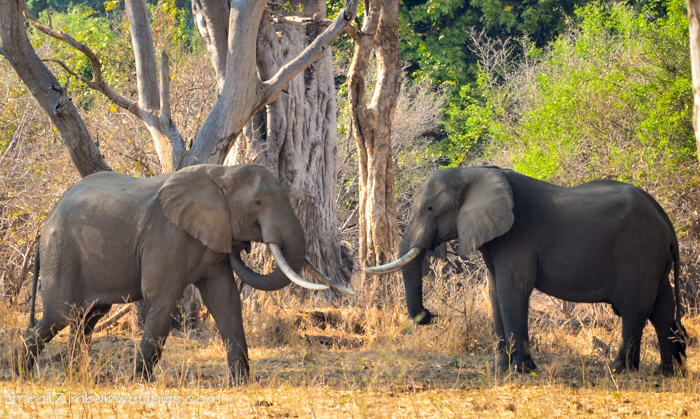
What language is spoken in Zimbabwe?
3. English is one of the official languages of Zimbabwe. English is used in many areas of modern Zimbabwe life: tourism, business, education and many areas of Zimbabwean life. Most Zimbabwean people are bilingual, fluent in both English and their regional language. In rural areas, there is less English spoken, but younger generations in particular will likely speak English even in the rural areas.
- The two dominant regional languages are Shona in the north, and Ndebele in the south, but it the population is diverse: there are 16 official languages spoken in Zimbabwe.
- If you’re an English speaker, you’ll have no problem travelling around Zimbabwe and communicating in shops or on transport. Zimbabwe was colonised by the British, and therefore many people in Zimbabwe speak and use English every day.
- Read about specific parts of Zimbabwe: Harare | Bulawayo | Great Zimbabwe (Masvingo) | Victoria Falls.
- You can use Google Translate or another translation app to try out words in Shona. However I couldn’t see this function for Ndebele (although Ndebele has similarities with Zulu).
What cultural traditions do I need to be aware of in Zimbabwe?
4. On the surface, urbanised areas of Zimbabwe look Western, but Zimbabwe’s traditional culture is varied and mature: it goes back tens of thousands of years among numerous tribes and lineages.
My main cultural suggestions for visitors to Zimbabwe are as follows:
- Greetings are important. Before talking to people – whether it is the visa official at the airport or the taxi driver – say “Good morning/afternoon/evening” and follow this up with a “How are you?” or respond to their question of the same. Say that you are fine or well. Don’t skip past this part, even if you are only asking a stranger for directions.
- If you see the same person the next day, greet them again with care. Then you can proceed with your question or conversation. There are few reasons to rush a polite greeting in Zimbabwe.
- Be courteous. Start with “please” when asking for something. Say “thank you” often, for example when you are brought your meal, or have finished an activity with a guide.
- Be particularly polite and respectful of older people, as they have a high standing in traditional society.
- Do not ask a Zimbabwean direct questions about the government unless they talk about it first. Politics is a complex issue in Zimbabwe. Tourists are not usually affected by violence, and especially not political violence, but local people are more vulnerable to this. As a result, they may be guarded when talking about political leaders or parties.
- Study a map beforehand to understand the different countries of Zimbabwe, South Africa, Zambia and Botswana. These are all different countries with their own identities, much like Canada vs USA; or Australia vs New Zealand. Getting them muddled up will be met with understanding, but getting them right will show respect.
- A traditional way of showing gratitude is by gently clapping the hands together: fingertips touching for men and an ‘x’ shape of the hands for women. You won’t be expected to do this, but it might be helpful to understand why you see others doing so.
- Zimbabweans are usually gentle and tolerant of other cultures and beliefs, but this is still a fairly conservative country. The majority of the population have spiritual beliefs and traditions, ranging from ancestral African religions to various forms of Christianity.
- Homosexuality is illegal in Zimbabwe. However it’s not uncommon to see men walking hand in hand with each other in friendship.
- If you’d like to get a better understanding of the two main different Zimbabwean ethnicities and history, see the following:
What health precautions do I need to take when visiting Zimbabwe?
5. Read the full details on how to stay safe in Zimbabwe in the Health information article.
- Prophylaxis medication for malaria, and staying hydrated, are the main two ways to protect yourself against malaria and sunstroke, respectively.
- Ebola is not currently a threat in Zimbabwe because the country is situated so far away from West Africa: around 9000 km or 6000 miles!
- The town of Victoria Falls has a 75%+ vaccination rate for Covid-19.
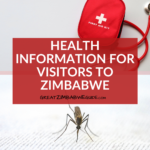
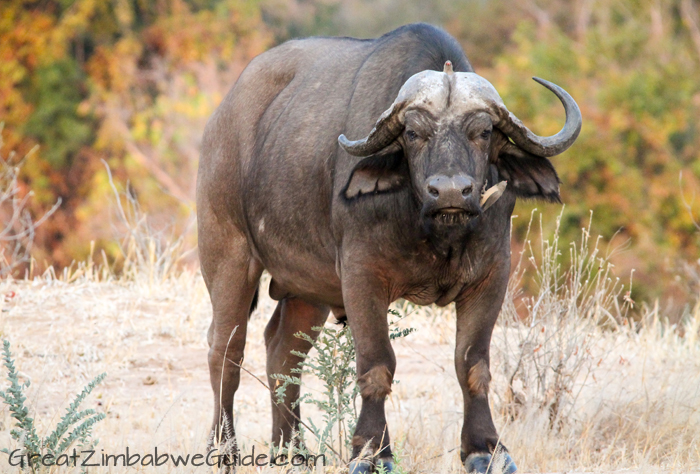 Is it safe in Zimbabwe?
Is it safe in Zimbabwe?
6. Zimbabwe is one of the safest African countries, as long as you’re as aware of your surroundings as you would be in your home country.
Read full details in this complete article dedicated to the topic: Safety in Zimbabwe.
There’s been a misconception in the media that black Zimbabweans don’t like white people. This was part of a political propaganda tool used by recent governments, and it is focused towards the white people who hold power within Zimbabwe: those who previously displaced or discriminated against black people. Although it’s a complex issue, most Zimbabweans are hugely welcoming, open and appreciative of tourists, whether they be black or white. When you visit Zimbabwe, you will probably see more white people than you expected! White Zimbabweans are still living and working in Zimbabwe alongside black Zimbabweans, many of them with congeniality and warmth.
The people of Zimbabwe have a well-deserved reputation for being among the most easy-going, welcoming and hospitable in Africa (and, in our biased opinion, the world).
Although political oppression is still an issue in Zimbabwe, this is completely out of sight of tourist areas. You can also read about the Ethics of visiting Zimbabwe here.
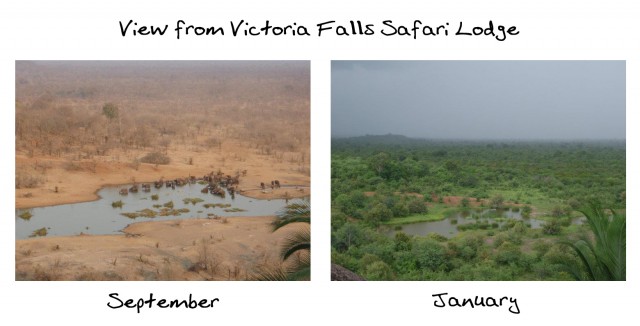 What’s the weather like in Zimbabwe?
What’s the weather like in Zimbabwe?
7. It’s usually sunny and warm during the day, but temperatures can drop at night. A hat, sun cream, sunglasses and a fleece jacket are essentials. See our detailed climate and weather article for more information on this.
- The best time to visit Zimbabwe is between April and September.
- Rain usually only falls between November and March, in the summer.
- The hottest months are September and October. Zimbabwe is at a high altitude, which means the heat doesn’t usually feel as oppressive as it does in coastal countries. However, anyone feels the heat when it’s above 30 degrees!
- In June and July (winter), it gets frosty at night but stays mild, beautiful and warm during the day.
- Zimbabwe is a year-round destination, but some times are better than others if you have something specific to do in mind, such as white-water rafting.
- Read about specific parts of Zimbabwe as the temperatures do vary: Harare | Bulawayo | Great Zimbabwe | Victoria Falls.
Which airlines fly into Zimbabwe?
8. The number of airlines flying into Zimbabwe is increasing again, which means that you have a number of options.
Main airlines are: Emirates, Ethiopian Airways, British Airways (codeshare), Virgin Atlantic (codeshare), RwandAir, Kenyan Airways, Qatar Airways, KLM (codeshare) and South African Airways.
See a list of airlines, as well as information about Zimbabwe airports here: Flights to Zimbabwe.
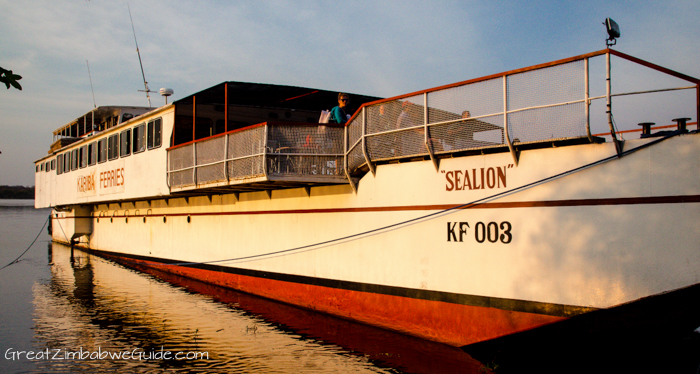 What transport should I use within Zimbabwe? / How do I travel around Zimbabwe?
What transport should I use within Zimbabwe? / How do I travel around Zimbabwe?
9. If you’re coming from abroad, then all-inclusive operators will usually organise all transport for you.
- Transport options in Zimbabwe are: all-inclusive packaged transport, self-drive using a hired vehicle, local flights, local coaches, or private road shuttle service.
- See full details of methods of transport in our post on Transport within Zimbabwe.
What do I need to pack for Zimbabwe?
10. Must-packs are sunscreen, hat, walking shoes and a fleece jacket.
- See a full packing list in our post on What to pack for a Zimbabwe holiday.
- Note that Zimbabwe sockets are mainly square 3-pins (type G), but check with your accommodation first.
More practical information below the picture, keep reading …
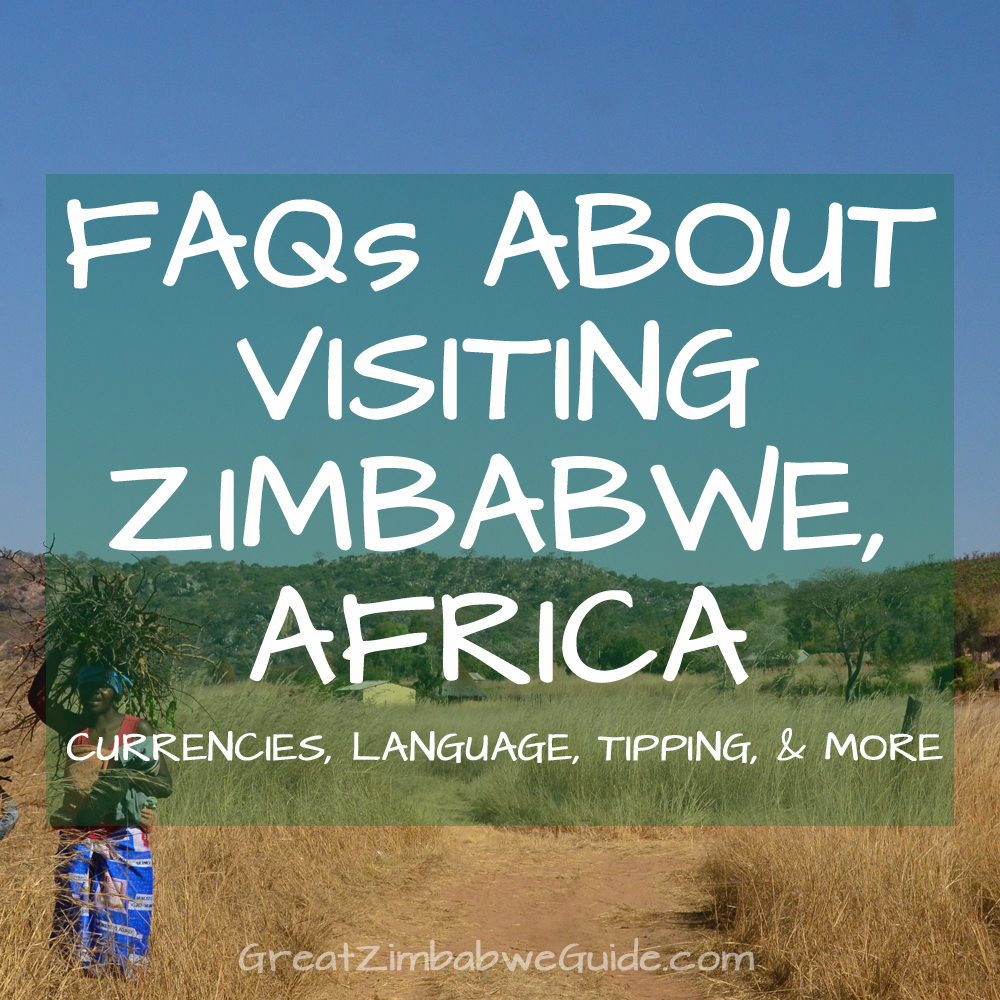
What time zone is Zimbabwe in?
11. Zimbabwe is 2 hours ahead of GMT. It’s in the CAT (Central African Time) zone; same as South Africa.
This means that depending on the time of year, it’s 1-2 hours ahead of London and 6-7 hours ahead of New York.
Is Internet access/Wifi easily available?
12. In a word, yes, there is Wifi in the urbanised cities and towns. In rural areas and National Parks, WiFi is not common – but you will be in the wilderness for a reason. WiFi is not one of them!
- Many hotels and guesthouses in Victoria Falls, Harare and Bulawayo will have internet of some form.
- Many coffee shops also have Wifi, although you may need to buy a top-up card from the venue to do so.
- Note that Zimbabwe sockets are mainly square 3-pins (type G), but check with your accommodation first.
- If you’re going outside of the cities into the countryside/wildlife park, the likelihood is that there won’t be internet – however, that will be the last thing on your mind when you’re in the bush.
- Zimbabwean websites usually end in the domain extension ‘co.zw’, but some use the South African ‘co.za’.
- If you’re visiting on a packaged holiday with transport pre-arranged, your transport provider will usually have a local cell phone/communication method with them at all times in case of emergency.
- You can still use your international phone for photos, and for Wi-fi based services such as WhatsApp and email. When you arrive in Zimbabwe, your phone will ask whether you want to connect to the local cell networks or not: this is your choice based on your home cell/mobile roaming fees. If connecting, Econet, TelOne and Telecel are the biggest cell networks in Zimbabwe. Alternatively, keep your phone on airplane mode until you’re in a spot that has Wi-fi, such as your accommodation. Then you can connect to wi-fi to connect to the Internet and communicate with family and friends until your next activity.
- You could also buy a local cell phone line and top-up bundles. Make sure your phone is unlocked for international use (see below).
What’s the international telephone dialling code?
13. The international dialling code for Zimbabwe is +263. This is the number people from outside the country need to dial to phone Zimbabwe. They will also drop the first ‘0’ of the telephone number.
- You can buy a SIM card in Zimbabwe and use your international cell phone with a local line if the phone is unlocked for international use.
- You only really need a local line if you’re self-driving and need to stay connected in case of emergencies. If you’re phone is not unlocked for international use, buy a cheap basic unlocked phone in advance, like this Samsung E1050, and buy a local SIM card when you get to Zimbabwe.
- If you’re visiting on a packaged holiday with transport pre-arranged, your transport provider will have a local cell phone/communication with them at all times in case of emergency. You can still use your international phone for photos, and for Wi-fi based services such as WhatsApp and email. When you arrive in Zimbabwe, your phone will ask whether you want to connect to the local cell networks or not: this is your choice based on your home cell/mobile roaming fees. If connecting, Econet, TelOne and Telecel are the biggest cell networks in Zimbabwe. Alternatively, keep your phone on airplane mode until you’re in a spot that has Wi-fi, such as your accommodation. Then you can connect to wi-fi to connect to the Internet and communicate with family and friends until your next activity.
Do people give tips at restaurants/hotels?
14. Yes, people usually tip about 10% at sit-down restaurants. For hotels, see below.
- Standalone restaurants: Check the restaurant’s bill to see if the tip has already been included. If not, you can leave cash of 10% on the table or hand it to the staff member with a handshake.
- In-house restaurants at hotels and safari lodges: Tips after pre-packaged meals are not usually given.
- At the end of a stay in a hotel or lodge: Guests often give a tip to the safari guides, drivers and/or other members of staff if they feel they have done a good job. Salaries in Zimbabwe are not high, even for local safari guides. A guideline is $10 tip per day of your stay for a specific member of staff. A nice way to do it is to put the money in an envelope and give it to the member(s) of staff in person, with a hearty handshake and a ‘thank you’. This is not a requirement if you are financially not able to do so. Just by purchasing your holiday you have continued to support the jobs of those employed in Zimbabwe’s tourism industry.
- Tip boxes: At some hotels and lodges, there is simply a box in reception where guests can give a tip if desired, which is shared between staff. This is usually signposted.
- When tipping: When a Zimbabwean receives a gift or tip, they might softly clap their hands together and bend at the knee. They may also touch their left forearm with their other hand. This is a customary way of saying thank you in Zimbabwe. Do not be alarmed at this expression of gratitude. You could respond by clapping your own hands together too in the way that they have done, or simply by shaking hands with them.
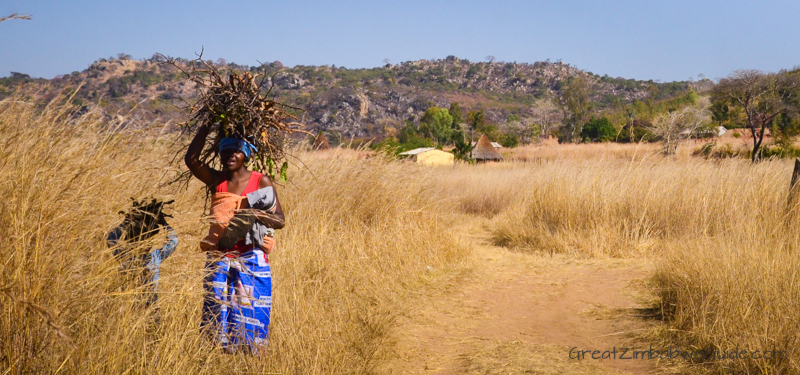 Is it ethical to visit Zimbabwe?
Is it ethical to visit Zimbabwe?
15. There’s so much to say on this one! There has been a lot of media debate about the role of tourists in Zimbabwe’s politics. Some say that tourists should avoid visiting Zimbabwe to make a statement against Zimbabwe’s political repression. I don’t think this solves Zimbabwe’s current problems.
Zimbabwe needs tourists, so that local businesses can grow, so that regular Zimbabweans can support their families, and so that the wildlife and their habitats can be financially supported.
Find out more about my thoughts on this question in my post about the ethics of visiting Zimbabwe. 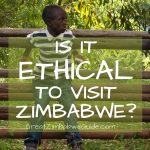
And if you’re still wondering about the coffee …. Zimbabwe has excellent coffee, both imported and local! You can’t drive more than 10 minutes in Harare without coming across a coffee shop with a good brew and delicious cake!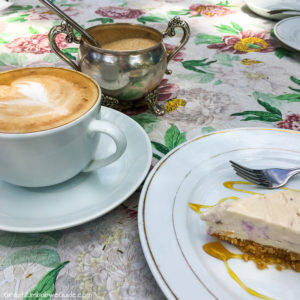
Read about specific locations and topics about Zimbabwe:
Victoria Falls travel guide
Harare travel guide
Bulawayo travel guide
Great Zimbabwe monument travel guide
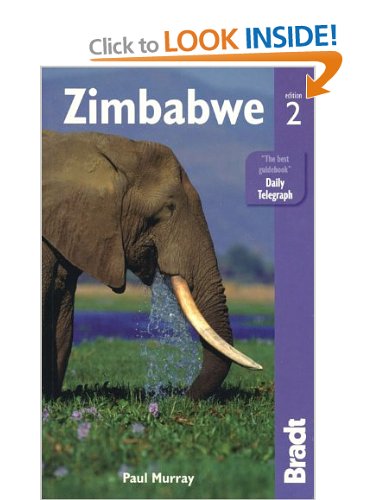 For more in-depth information, read the 2013 edition of Bradt’s Zimbabwe travel guide by Paul Murray.
For more in-depth information, read the 2013 edition of Bradt’s Zimbabwe travel guide by Paul Murray.
What purchase would I make before my flight? These Sony Noise Cancelling Wireless Bluetooth Headphones are perfect for getting some shut-eye on a long journey. They have up to 35 hours battery life and quick charging. See them on Amazon here (I’m an affiliate, which means I may get pennies from your purchase at no extra cost to you).
Great Zimbabwe Guide gives travel tips, information and inspiration about Zimbabwe, Africa. We share stories of Zimbabwe’s talented people, world-class wilderness & wildlife safari experiences, all wrapped up in an unmatched climate.
Do you have a question about visiting Zimbabwe? Start with the Quick-reference list of travel advice.
Follow Great Zimbabwe Guide on social media for even more Zimbabwe travel tips and inspiration: Facebook (@GreatZimbabweGuide) & Instagram(@GreatZimGuide). To ensure you don’t miss anything, sign up for email newsletters at the bottom of this page.
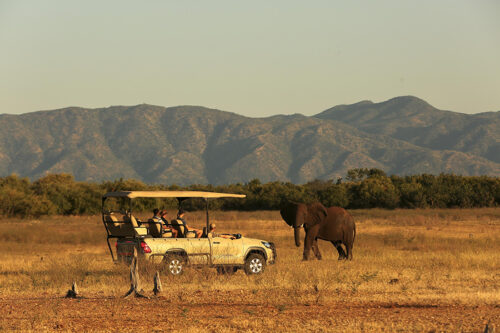 If you’re planning your Zimbabwe holiday (hooray!), I can recommend Go2Africa, Africa’s Leading Safari Company (and one of our affiliates). Go2Africa has been tailor-making safari holidays for thousands of clients from across the globe since 1998. You can research African destinations, accommodation, and more. Even better, you can directly contact their safari specialists who can help you get the African experience that’s perfect for you.
If you’re planning your Zimbabwe holiday (hooray!), I can recommend Go2Africa, Africa’s Leading Safari Company (and one of our affiliates). Go2Africa has been tailor-making safari holidays for thousands of clients from across the globe since 1998. You can research African destinations, accommodation, and more. Even better, you can directly contact their safari specialists who can help you get the African experience that’s perfect for you.
Check out the Go2Africa website, or see their Zimbabwe tours here.

